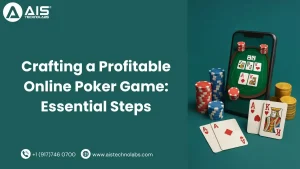
Bluffing in poker is a delicate art form. If a player bluffers too much, they risk getting called. On the other hand, bluffing too infrequently means missing out on opportunities.
Understanding your opponents’ betting patterns and paying attention to subtle tells is crucial for successful bluffing. In addition, knowing when to bluff can make your entire game better.
The Basics
Bluffing isn’t just a poker skill; it’s a subtle art that requires an intimate understanding of the game’s nuances. In addition to quick thinking and strategic decision making, mastering bluffing also involves understanding how opponents react to different scenarios and assessing their own tendencies and behaviors.
This requires a good understanding of pot odds, betting sizes, and hand selection. It’s also essential to know how to read your opponents’ body language and emotional responses to make them more susceptible to your deception. Lastly, it’s important to build a solid table image by playing conservatively early on in order to make your bluffs more believable.
Bluffing is a powerful weapon in the poker world, but it’s not foolproof. Using it too often can cause you to lose credibility and ultimately make your opponents more wary of your next move. Bluffing is all about timing and being able to read your opponent’s behavior, so be sure to use it sparingly and strategically.
Reading Tells
Bluffing is all about misdirection, convincing opponents that you have a weaker or stronger hand than your actual one. It is an important poker strategy that can help you win hands you would otherwise lose, but it’s also a tricky art to master. It requires the right timing and precision to pull off a successful bluff.
Observing how your opponent’s body language and betting patterns can help you figure out whether they’re bluffing or not. If they seem tense and stiff, it’s often an indication of a bluff. However, if they’re relaxed and moving around, it’s usually a sign of a strong hand.
Choosing the right bet sizes is also crucial when it comes to bluffing. You don’t want to use different bet sizings for your bluffs and value hands, as competent players will pick up on this. Instead, choose a bet size that’s similar to the amount you would bet on your value hands in the same situation.
Betting Sizes
A good bluff can be the difference between winning and losing a pot. Moreover, it can even create a threatening effect that makes your opponents think twice about calling your bets in the future.
Bluffing is a delicate dance, and the timing of your actions is critical. Successful bluffers understand the game’s rhythm and their opponents’ playing patterns, picking the right moment to make a bet.
Another important factor is the size of your betting bets. When you’re bluffing, it’s best to use the same betting size that you would be betting with your value hands in the same situation. Different bet sizes can give your opponent clues that you’re bluffing. A bet that’s too big may scare off your opponent, while a bet that’s too small might not seem like much of a threat to call. Also, avoid bluffing against players who have tilted after being caught on a previous bluff. This is because they may continue to be reckless in the hands immediately following their mistake.
Bluffing at the Right Moments
When you bluff in poker, it is important to choose the right moment. If you bluff too often or at the wrong time, your opponents will know what’s up and your strategy will fail. This is why it’s important to study your opponents and learn their tendencies. For example, some players scratch their nose when they’re nervous or shuffle their chips when they have a strong hand. Observing these small tells can help you determine the best times to make a bluff.
Bluffing is a complex skill that requires a mix of psychology, strategic awareness, and tactical execution. The key to success is creating a compelling narrative that leaves your opponents unsure of your intentions. However, even the most skilled poker players experience failed bluffs from time to time. By analyzing these mistakes, you can develop strategies for recovering from them and improve your overall game. This will help you become a more formidable opponent at the poker table, whether it’s at an online casino like Bet Roo or at a physical poker game.







